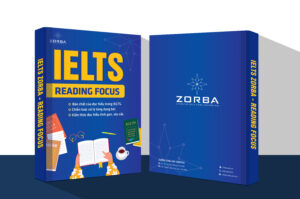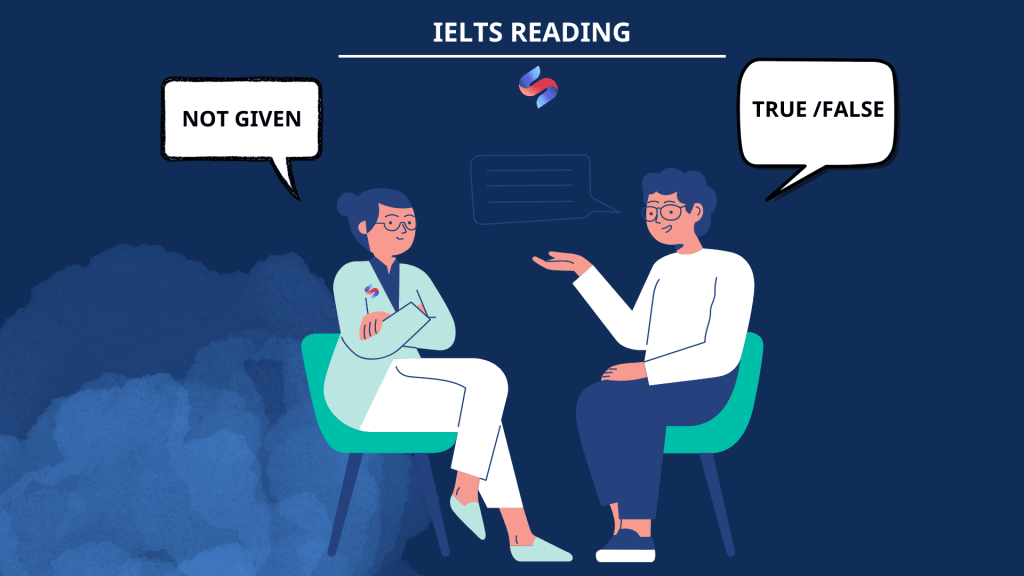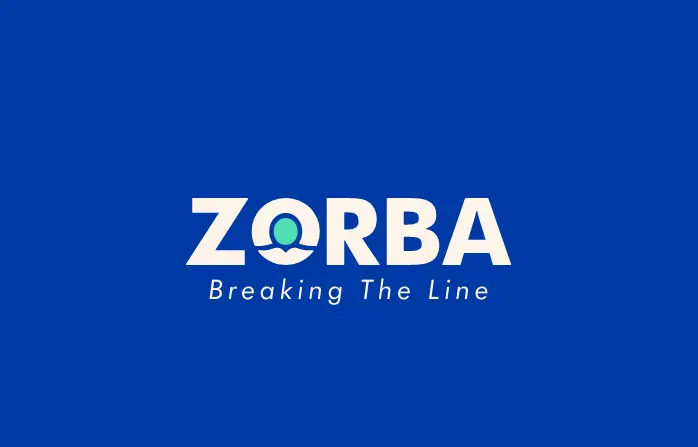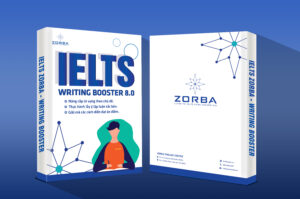
Young Children’s Sense of Identity
- A sense of ‘self’ develops in young children by degrees. The process can usefully be thought of in terms of the gradual emergence of two somewhat separate features: the self as a subject, and the self as an object. William James introduced the distinction in 1892, and contemporaries of his, such as Charles Cooley, added to the developing debate. Ever since then psychologists have continued building on the theory
B According to James, a child’s first step on the road to self-understanding can be seen as the recognition that he or she exists. This is an aspect of the self that he labeled ‘self-as-subject’, and he gave it various elements. These included an awareness of one’s own agency (i.e. one’s power to act) and an awareness of one’s distinctiveness from other people. These features gradually emerge as infants explore their world and interact with caregivers. Cooley (1902) suggested that a lot of the self-as-subject was primarily concerned with being able to exercise power. He proposed that the earliest examples of this are an infants attempts to control physical objects, such as toys or his or her own limbs. This is followed by attempts to affect the behavior of other people. For example, infants learn that when they cry or smile someone responds to them.
C Another powerful source of information for infants about the effects they can have on the world around them is provided when others mimic them. Many parents spend a lot of time, particularly in the early months, copying their infant’s vocalizations and expressions in addition, young children enjoy looking in mirrors, where the movements they can see are dependent upon their own movements.This is not to say that infants recognize the reflection as their own image (a later development). However, Lewis and Brooks-Gunn (1979) suggest that infants’ developing understanding that the movements they see in the mirror are contingent on their own, leads to a growing awareness that they are distinct from other people. This is because they, and only they can change the reflection in the mirror.
D This understanding that children gain of themselves as active agents continue to develop in their attempts to co-operate with others in play. Drum (1988) points out that it is in such day-to-day relationships and interactions that the child’s understanding of his· or herself emerges. Empirical investigations of the self-as- subject in young children are, however, rather scarce because of difficulties of communication: even if young infants can reflect on their experience, they certainly cannot express this aspect of the self directly.
E Once Children have acquired a certain level of self-awareness, they begin to place themselves in a whole series of categories, which together play such an important part in defining them uniquely as ‘themselves’. This second step in the development of a full sense of self is what lames called the ‘self-as-object’. This has been seen by many to be the aspect of the self which is most influenced by social elements, since it is made up of social roles (such as student, brother; colleague) and characteristics which derive their meaning from comparison or interaction with other people (such as trustworthiness, shyness, sporting ability).
F Cooley and other researchers suggested a close connection between a person’s own understanding of their identity and other people’s understanding of it. Cooley believed that people build up their sense of identity from the reactions of others to them, and from the view, they believe others have of them He called the self- as-object the ’looking-glass self’, since people come to see themselves as they are reflected in others. Mead (1934) went even further, and saw the self and the social world as inextricably bound together. The self is essentially a social structure, and it arises in social experience. It is impossible to conceive of a self-arising outside of social experience.’
G Lewis and Brooks-Gunn argued that an important developmental milestone is reached when children become able to recognize themselves visually without the support of seeing contingent movement. This recognition occurs around their second birthday. In one experiment, Lewis and Brooks-Gunn (1979) dabbed some red powder on the noses of children who were playing in front of a mirror, and then observed how often they touched their noses. The psychologists reasoned that if the children knew what they usually looked like, they would be surprised by the unusual red mark and would start touching it. On the other hand, they found that children of 15 to 18 months are generally not able to recognize themselves unless other cues such as movement are present.
H Finally perhaps the most graphic expressions of self-awareness, in general, can be seen in the displays of rage which are most common from 18 months to 3 years of age. In a longitudinal study of groups of three or four children, Bronson (1975) found that the intensity of the frustration and anger in their disagreements increased sharply between the ages of 1 and 2 years. Often, the children’s disagreements involved a struggle over a toy that none of them had played with before or after the tug-of-war: the children seemed to be disputing ownership rather than wanting to play with it. Although it may be less marked in other societies, the link between the sense of ’self’ and of ‘ownership’ is a notable feature of childhood in Western societies.
- Giải thích từ vựng
- Degree (n) /dɪˈɡriː/ mức độ
Eg: This job demands a high degree of skill.
There isn’t the slightest degree of doubt that he’s innocent.
I have to warn you that there’s a degree of danger involved in this.
The number of terrorist attacks has increased to a terrifying degree.
- In terms of: xét về mặt…
Eg: We try to do what is best for our customers in terms of the quality of our products.
The job is great in terms of salary, but it has its disadvantages.
This title ranks alongside the Olympics in terms of importance.
- Gradual (a) /ˈɡrædʒ.u.əl/ dần dần, từ từ, từng bước một
Eg: There has been a gradual improvement in our sales figures over the last two years.
As you go further south, you will notice a gradual change of climate.
Một số từ đồng nghĩa:
- Slow You’re so slow – hurry up!
- Leisurely We took a leisurely drive along the quiet coast road.
- Unhurried I like the unhurried pace of life in the countryside.
- Gentle Start off with a gentle jog, then gradually increase your speed.
- Distinction (n) /dɪˈstɪŋk.ʃən/ sự phân biệt; điều phân biệt, điều khác nhau
Eg: There’s a clear distinction between the dialects spoken in the two regions.
There’s a clear distinction between the two countries’ cultures.
It’s sometimes very difficult to draw a clear distinction between the meanings of different words.
Một số từ đồng nghĩa:
- difference What’s the difference between the two cars?
- Contrast I like the contrast of those red shoes with your black suit.
- Discrepancy There is some discrepancy between the two accounts.
- Chasm There is a widening chasm between public health officials and popular opinion.
- Gulf Peace talks attempted to bridge the gulf between the two warring nations.
- Contemporary (n) /kənˈtem.pər.ər.i/ người cùng thời; người cùng tuổi, bạn đồng nghiệp (báo chí)
Eg: She didn’t mix with her contemporaries, preferring the company of older people.
She didn’t mix with her contemporaries, preferring the company of older people.
- Debate (v,n) /dɪˈbeɪt/ cuộc tranh luận, cuộc thảo luận, cuộc tranh cãi
Eg: Education is the current focus of public debate.
How we proceed from here is a matter for debate.
Over the year we have had several debates about future policy.
The debate completely changed course after Liz made her speech.
- Recognition (n) /ˌrek.əɡˈnɪʃ.ən/ sự công nhận, sự thừa nhận
Eg: It’s a new country, hoping for diplomatic recognition from the international community.
Một số từ đồng nghĩa:
- acceptance The idea was slow to find general acceptance.
- Acknowledgment We still await an acknowledgment of the fact that our case was handled improperly.
- Resignation She sighed in weary resignation.
- Agency (n) /ˈeɪ.dʒən.si/ tác dụng, lực
Eg: The protest gave us a sense of agency, a sense of our own power to make a difference.
When the legal system acquitted these women on the grounds of insanity it denied their agency.
Collocation
- through the agency of sb: She was freed from prison through the agency of her doctor.
- Primarily (adv) /praɪˈmer.əl.i/ trước hết, đầu tiên/ chủ yếu, chính
Eg: The new scheme is aimed primarily at teenagers.
We moved to Scotland primarily because we wanted to be nearer to my family.
Một số từ đồng nghĩa:
- Chiefly
- in the main
- mainly
- principally
- Vocalization (n) /ˌvəʊ.kəl.aɪˈzeɪ.ʃən/ sự phát âm; cách đọc
Eg: Chimpanzees produce vocalizations by alternating the sizes and shapes of their mouths.
- Expression (n) /ɪkˈspreʃ.ən/ sự biểu lộ (tình cảm…), sự diễn cảm; sự biểu hiện (nghệ thuật…); sự diễn đạt (ý nghĩ…)
Eg: He wrote her a poem as an expression of his love.
We’ve received a lot of expressions of support for our campaign.
Freedom of expression is a basic human right.
Express (v)
- Reflection (n) /rɪˈflek.ʃən/ sự phản chiếu, sự phản xạ, hình ảnh trong gương/ sự phản ánh
Eg: She was looking at her reflection in the mirror.
She could see her reflection in the water, shimmering in the moonlight.
She checked her reflection in the mirror.
Collocation
- a reflection on sb/sth
- Empirical (a) /ɪmˈpɪr.ɪ.kəl/ theo lối kinh nghiệm, kinh nghiệm chủ nghĩa
Eg: This theory needs to be backed up with solid empirical data.
Collocation
- empirical analysis/research/study The diagnosis of a business problem should be based both on empirical analysis and on theoretical analysis.
- empirical evidence/data/finding
- Scarce (a) /skeəs/ khan hiếm, ít có, thiếu, khó tìm
Eg: With jobs so scarce, many young people have nothing to do.
In wartime, food is often scarce.
Research evidence in this area is scarce.
- Category (n) /ˈkæt.ə.ɡri/ hạng, loại
Eg: There are three categories of accommodation – standard, executive, and deluxe.
There’s a prize for the fastest three runners in each category.
Một số từ đồng nghĩa:
- Sort What sort of clothes do you like to wear?
- Kind What kind of job are you looking for?
- Type He’s the type of man who never listens to what you’re saying.
- Form Swimming is the best form of exercise.
- Variety The article was about the different varieties of Spanish spoken in South America.
- Characteristic (n) /ˌkær.ək.təˈrɪs.tɪk/ đặc tính, đặc điểm
Eg: Unfortunately a big nose is a family characteristic.
Sentimentality seems a characteristic of all the writers of that period.
- Derive (v) /dɪˈraɪv/ nhận được từ, lấy được từ, tìm thấy nguồn gốc từ
Eg: The institute derives all its money from foreign investments.
She derives great pleasure/satisfaction from playing the violin.
Collocation
- derive sth from sth
- Identity (n) /aɪˈden.tə.ti/ cá tính, đặc tính; nét để nhận biết; nét để nhận dạng, nét để nhận diện
Eg: The man’s identity was being kept secret while he was helping police with their enquiries.
Collocation
- confirm/prove your identity You may be asked to confirm your identity by phone.
- Inextricably (adv) /ˌɪn·ɪkˈstrɪk·ə·bli/ không thể gỡ ra, gắn bó chặt chẽ
Eg: The Louis Armstrong legend is inextricably linked with his recordings.
- Milestone (n) /ˈmaɪl.stəʊn/ sự kiện quan trọng, mốc lịch sử, giai đoạn quan trọng
Eg: He felt that moving out of his parents’ home was a real milestone in his life.
Collocation
- a milestone in sth
- set milestone
- meet milestone
- Unusual (a) /ʌnˈjuː.ʒu.əl/ không thường, không thông thường, không thường dùng, không quen
Eg: Their kitchen is painted an unusual shade of yellow.
It’s unusual to have a goalkeeper as the captain of a football team.
He uses a lot of unusual expressions.
Một số từ đồng nghĩa:
- Uncommon It’s not uncommon (= it is common) for people to become ill when they travel.
- Rare This is a rare opportunity to visit the building.
- Unconventional I had a very unconventional childhood.
- Unique This is your chance to own a unique piece of jewellery.
- Self-awareness (n) /ˌself.əˈweə.nəs/ sự tự nhận thức, sự biết mình
Eg: Counselling can help to achieve greater self-awareness.
- Longitudinal (a) /ˌlɒŋ.ɡɪˈtʃuː.dɪ.nəl/ theo chiều dọc
Eg: Longitudinal lines run from north to south.
- Graphic (a) /ˈɡræf.ɪk/ sinh động, rõ ràng
Eg: He insisted on describing his operation in graphic detail while we were eating lunch.
The article contains graphic descriptions of the effects of poverty on a whole population.
Collocation
- a graphic description/depiction
- Rage (n) /reɪdʒ/ cơn thịnh nộ, cơn giận dữ
Eg: Her sudden towering rages were terrifying.
I was frightened because I had never seen him in such a rage before.
Một số từ đồng nghĩa:
- Anger He vented his anger by kicking the door.
- Annoyance Smoke can cause annoyance by making clothes and hair smell unpleasant.
- Irritation She expressed irritation with her son’s attitude.
- Frustration A lot of children’s behaviour problems are caused by sheer frustration.
- Fury The speech provoked fury in some parts of the world.
- Intensity (n) /ɪnˈten.sə.ti/ sức mạnh; tính mãnh liệt, tính dữ dội
Eg: The intensity of their relationship was causing problems.
She sang with febrile intensity.
- Sharply (adv) /ˈʃɑːp.li/ thình lình, đột ngột
Eg: Inflation has risen sharply.
His health deteriorated sharply this week.
- Ownership (n) /ˈəʊ.nə.ʃɪp/ quyền sở hữu
Eg: Do you have any proof of ownership of this car?
Collocation
-
- under sb’s ownership The business has been under the same ownership for 44 years.
- home/property ownership The spiralling cost of housing has pushed home ownership beyond the reach of many people.
- share/stock ownership The organization promotes wider share ownership.
- take/acquire/retain ownership of sth Earlier this year the group took 51% ownership of the financial services unit.
- take into private ownership
- Imitation (n) /ˌɪm.ɪˈteɪ.ʃən/ sự bắt chước; vật bắt chước, vật mô phỏng, vật phỏng mẫu
Eg: Ten-year-olds have started wearing lipstick and make-up in imitation of the older girls.
She can do a wonderful imitation of a blackbird’s song.
Một số từ đồng nghĩa:
- Artificial Her bouquet was made of artificial flowers.
- Synthetic The tyres are made with synthetic rubber.
- Man-made Nylon is a man-made fibre.
- Fake He was selling fake fur jackets.
- Mastery (n) /ˈmɑː.stər.i/ quyền làm chủ
Eg: Of course mastery over one’s circumstances may give rise to arrogance and intolerance.
He struggled for mastery over his emotions.
Collocation
- mastery of/over sb/sth
- Aggressive (a) /əˈɡres.ɪv/ hay gây sự, gây gổ, gây hấn, hung hăng, hùng hổ
Eg: The stereotype is that men tend to be more aggressive than women.
If I criticize him, he gets aggressive and starts shouting.
Một số từ đồng nghĩa:
- Violent Her ex-boyfriend was violent.
- Ferocious A ferocious dog guarded the house.
- Fierce The battle for the stronghold was fierce, with hundreds of soldiers killed.
- Savage It was a savage attack.
- Brutal He was jailed for the brutal crime.
- Luyện tập
Bài 1: Chọn từ trong khung để hoàn thành các câu bên dưới
| contemporaries | distinction | terms | gradual | primarily |
| vocalizations | recognition | agency | degree | debate |
- I wasn’t convinced by the minister’s nice …………….…….. between a lie and an untruth.
- In ………………. of cost—how much were you thinking of charging?
- There has been a ………………… degeneration of the judicial system in the last few years.
- To what ……………….. do you think we will be providing a better service?
- The toddler period is a key transition period for the development of independent functioning and a child’s sense of ………………………
- Ella complained that the company never gave her any ……………. for her work.
- Give or take a few years, they are …………………………
- She issued a challenge to her rival candidates to take part in a public ………..…
- Laboratory assistants kept a rough count of ……………………… during sessions.
- We live in a society which views success …………………… in terms of material possessions.
Bài 2: Chọn đáp án đúng để điền vào chỗ trống
- He listened to the music with an ……………………. of pure rapture on his face. A. recognition B. expression
- He smiled at his ………………………. in the mirror. A. reflection B. distinction
- He’s running in the veterans ……………………………. A. category B. agency
- This is a huge waste of ……………………… resources. A. gradual B. scarce
- These dogs show many of the ………………… traditionally associated with their breed. A. characteristics B. agencies
- He’s slightly …………………………….., which a lot of people find a bit off-putting when they first meet him. A. aggressive B. graphic
- Interest rates rose ………………………………… last month. A. inextricably B. sharply
- That’s an …………………………… name – is it an Icelandic name? A. longitudinal B. unusual
- A behaviour is an action if ……………………………… is its aim. A. -awareness B. milestone
- She had become ………………………………. involved in the campaign. A. inextricably B. primarily
- We have no………………………… evidence that the industry is in trouble. A. scarce B. empirical
- The informant was given a new ………………………………. for protection. A. category B. identity
- I didn’t ……………………………… much benefit from school. A. derive B. debate
- The opening of a branch in New York represented an important ……………………. for the company. A. milestone B. identity
- This is a very …………………………… account of life in Victorian England. A. graphic B. aggressive
- The king had absolute …………………………….. over the country. A. imitation B. mastery
- His business interests include ……………………… of a county newspaper. A. milestone B. ownership
- ……………………….. designs are research studies involving population samples and development effects over time. A. Longitudinal B. Empirical
- He was filled with jealous ………………………. when he saw his girlfriend talking to another man. A.mastery B. rage
- Freya does a pretty good …………………………….. of her science teacher. A. milestone B. imitation
- The firemen were forced to retreat by the …………………………. of the heat. A. intensity B. imitation
Bài 1:
- factual 2. relic 3. rooted 4. showcase 5.subtle
- virtual 7. domain 8. storage 9. artefacts 10. display
Bài 2:
1.B 2. B 3.B 4. A 5. A
- A 7. B 8. A 9. B 10. A
- B 12. A 13. A 14. B 15.A
- B 17. A 18. A 19. B 20. A
21. B 22. B














